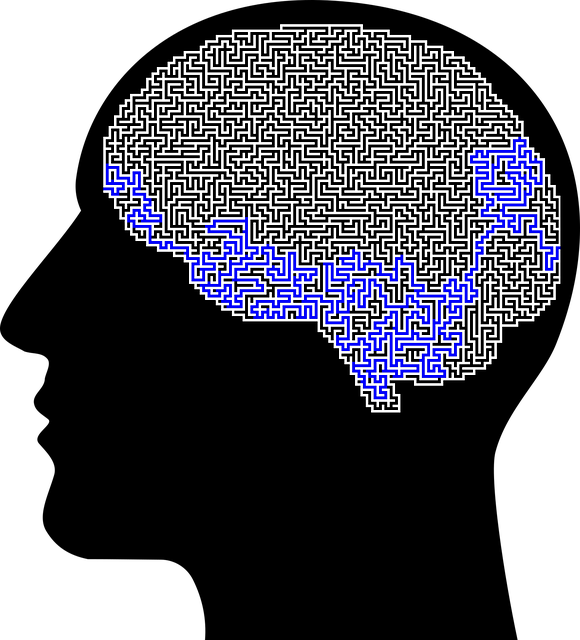Diagnosing mental illnesses, especially Castle Rock postpartum depression therapy, accurately is challenging due to diverse symptoms, individual variations, and stigma. Misdiagnosis can have severe consequences for new mothers' well-being. To address this, healthcare providers in Castle Rock are trained through Mental Health Education Programs to recognize subtle symptoms. Reducing stigma encourages open discussions and access to targeted therapies, improving mental health outcomes for conditions like postpartum depression. Early detection and comprehensive assessments are crucial for accurate identification, while evidence-based practices enhance treatment effectiveness.
Mental illness diagnosis accuracy is a critical aspect of healthcare, with significant implications for patient well-being. This article delves into the challenges surrounding mental health assessments, exploring factors like misdiagnosis prevalence and cultural biases that impact accuracy. We discuss innovative solutions, highlighting advanced assessment tools, technology integration, and evidence-based personalized treatment plans. Additionally, we focus on specialized care, such as Castle Rock Postpartum Depression Therapy, offering targeted interventions for new mothers, showcasing how tailored approaches enhance diagnosis accuracy and improve patient outcomes.
- Understanding the Challenges of Mental Illness Diagnosis
- – Prevalence and impact of misdiagnosis
- – Factors contributing to diagnostic errors
Understanding the Challenges of Mental Illness Diagnosis

Diagnosing mental illnesses accurately can be a complex task due to their diverse nature and often subtle symptoms. The experience of each individual is unique, making it challenging for healthcare professionals to pinpoint specific conditions, especially in cases like postpartum depression, where symptoms might overlap with physical exhaustion and hormonal changes. This complexity is further exacerbated by the presence of stigma surrounding mental health, which can deter individuals from seeking help or lead to misdiagnosis.
Efforts to enhance diagnosis accuracy involve multifaceted approaches. One key strategy is through Mental Health Education Programs Design that equip healthcare providers with advanced training in recognizing subtle symptoms and understanding individual variations. Additionally, Mental Illness Stigma Reduction Efforts play a pivotal role in creating a supportive environment where individuals feel comfortable discussing their struggles openly. By addressing these challenges head-on, communities like Castle Rock can foster better access to targeted therapy for conditions such as postpartum depression, thereby improving overall mental health outcomes.
– Prevalence and impact of misdiagnosis

Misdiagnosis in mental health is a significant concern, often leading to delayed treatment and negative outcomes for patients. It’s estimated that up to 30% of individuals who seek therapy are initially misdiagnosed, with postpartum depression (PPD) being one of the most commonly missed conditions, particularly in new mothers. This issue is not just a matter of inconvenience; it can have profound implications for an individual’s well-being and daily functioning. Misdiagnosed PPD may present as ongoing fatigue, irritability, or even severe mood swings, which, if left untreated, could escalate into more complex mental health issues.
Efforts to improve diagnosis accuracy are crucial, especially with the diverse range of mental health conditions and ever-evolving understanding of their symptoms. Organizations like Stress Management Workshops play a vital role in this regard by promoting public awareness campaigns that emphasize early detection and correct identification of mental health disorders. Through education, these initiatives help both healthcare professionals and individuals recognize the nuances of various conditions, such as Castle Rock postpartum depression therapy, ensuring timely access to appropriate treatment.
– Factors contributing to diagnostic errors

Diagnosing mental health conditions accurately is a complex process, often hindered by various factors. One significant challenge lies in the subjective nature of symptoms, which can vary greatly between individuals. For instance, what constitutes a typical depressive episode may differ across cultures or personal life experiences, making it harder for professionals to arrive at a consistent diagnosis. Additionally, many mental health disorders share similar presentations, leading to potential misdiagnosis or delayed identification.
In the context of Castle Rock postpartum depression therapy, these challenges are exacerbated. Hormonal changes, sleep disturbances, and emotional fluctuations common in new mothers can mimic symptoms of other conditions, such as anxiety or bipolar disorder. This underscores the importance of comprehensive assessments, including detailed medical histories, thorough mental status examinations, and sometimes specialized tools to improve diagnostic accuracy. Integrating evidence-based practices like mood management techniques, conflict resolution techniques, and trauma support services can also enhance the precision and effectiveness of treatment.
Mental illness diagnosis accuracy is a critical aspect of patient care, especially for conditions like postpartum depression. Efforts to improve diagnostic methods, by addressing challenges and understanding contributing factors, are essential. By recognizing the high prevalence of misdiagnosis and its impact on patients’ lives, healthcare professionals can enhance assessment strategies. Integrating advanced therapy techniques, such as those offered at Castle Rock Postpartum Depression Therapy centers, alongside comprehensive training, promises a brighter future for accurate mental health evaluations.








